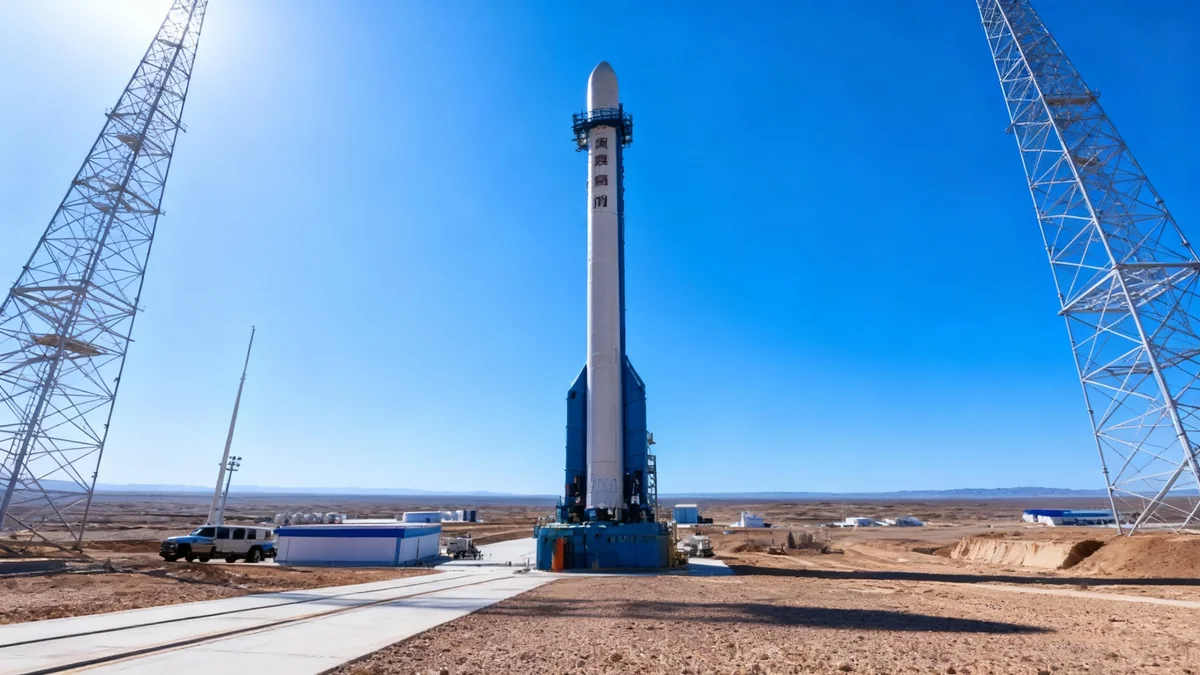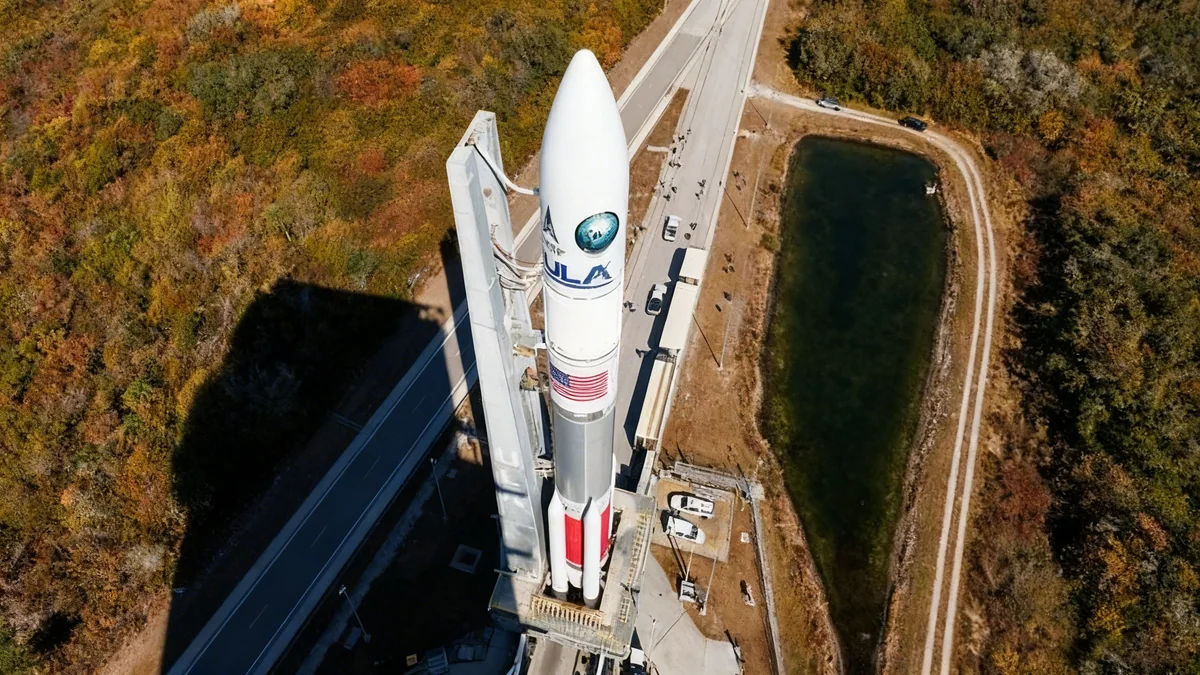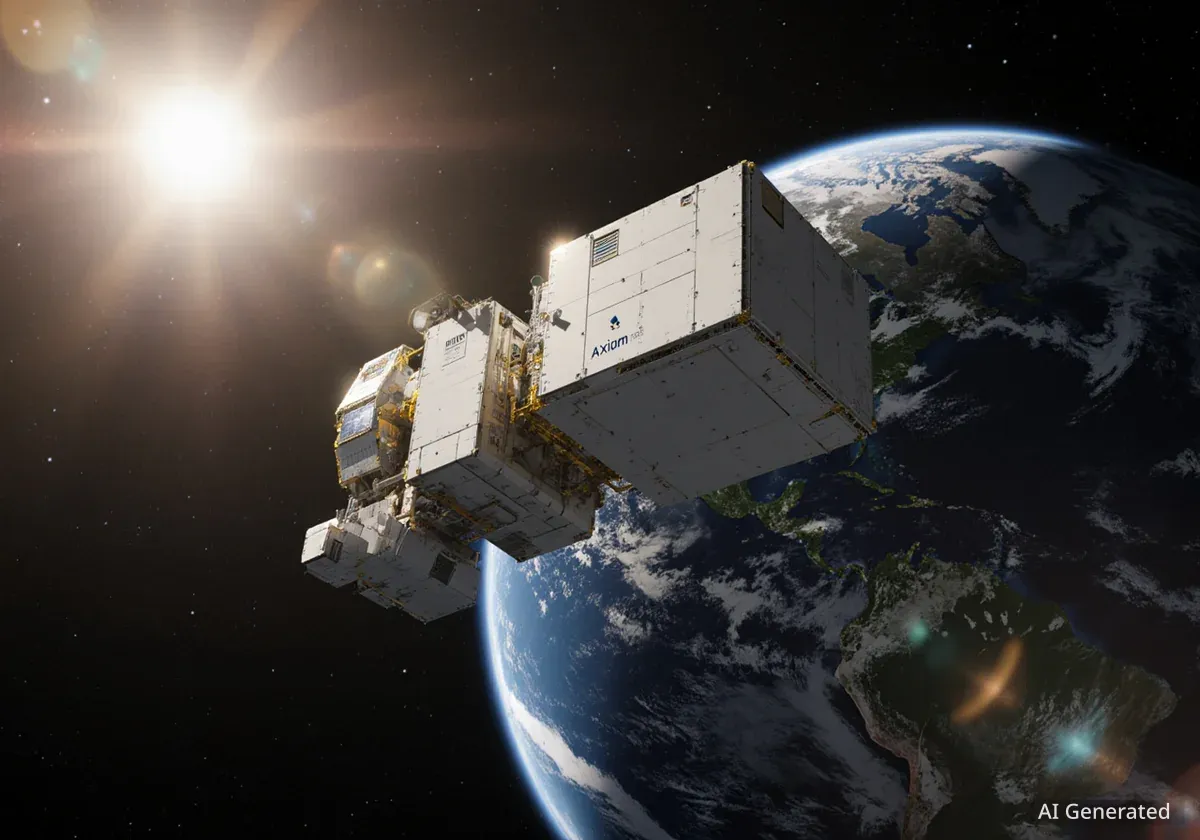Chinese commercial space firm StarDetect has successfully raised over 100 million yuan, equivalent to approximately $13.8 million, in new funding. The capital infusion is aimed at advancing the company's development of sophisticated space domain awareness technologies designed to monitor objects in Earth's orbit.
The company, founded in 2020, specializes in satellite payloads that integrate artificial intelligence and edge computing. This approach allows for real-time data processing directly on the satellite, a key innovation in the rapidly growing field of orbital monitoring.
Key Takeaways
- Chinese space startup StarDetect raised over 100 million yuan ($13.8 million) in Series A1 and A2 funding rounds.
- The company focuses on satellite payloads with onboard AI and computing for Space Domain Awareness (SDA).
- StarDetect utilizes innovative "event cameras" that detect motion and changes in light, rather than capturing traditional images.
- The funding will be used for research, mass production, and expansion into new applications as low Earth orbit becomes increasingly congested.
Details of the Funding Rounds
StarDetect announced the completion of its Series A1 and A2 funding rounds in late September. The investment was led by a consortium of firms, including Wuxi Innovation Investment Group, Yicun Capital, Jiangyin Talent Science and Innovation Angel Fund, and Jiangyin High-tech Industry Investment Management.
While Yicun Capital is a commercial investment firm, several other participants are state-led or local government investment vehicles. This mix of private and public funding highlights a broader trend in China's strategic support for its commercial space sector.
According to a statement from the company, the new capital is allocated for several key areas. These include expanding business operations in the Yangtze River Delta region, accelerating product technology research and development, scaling up for mass production, and exploring emerging application scenarios for their technology.
A Growing Commercial Space Sector
StarDetect's funding success is part of a larger investment surge in China's private space industry. Companies like Space Pioneer, which recently raised $350 million for its rocket development, are also moving toward initial public offerings. This indicates growing investor confidence and a strategic national push to build a robust commercial space ecosystem.
Innovative Technology for a Crowded Orbit
StarDetect's core mission is to provide advanced solutions for space domain awareness (SDA), which involves tracking satellites, debris, and other objects in orbit. As thousands of new satellites are launched for megaconstellations, the risk of collision and the need for effective monitoring have become critical.
The Power of Event Cameras
A key element of StarDetect's technology is its use of event cameras, also known as dynamic vision sensors. Unlike traditional cameras that capture full frames at set intervals, event cameras operate differently.
- They detect only changes in brightness at each individual pixel.
- This allows for microsecond-level temporal resolution, making them exceptionally fast.
- They produce a much lower volume of data, as they only record changes.
- They have a high dynamic range, enabling them to see both very bright and very faint objects.
For space awareness, this technology is particularly effective. It can detect and track faint or fast-moving objects, such as small pieces of debris, against the dark and cluttered backdrop of space. This method is more efficient for tracking motion and anomalous behavior than capturing and analyzing large image files.
Onboard Intelligence
By combining event cameras with powerful onboard computing and AI algorithms, StarDetect's payloads can process data in real-time. This reduces the need to downlink massive amounts of raw data to ground stations, saving time and resources for clients. Satellites can instead transmit processed, actionable information.
Strategic Importance in a New Space Age
The development of advanced SDA capabilities is a strategic priority. With limited global ground-based sensor networks, space-based systems provide a more comprehensive and persistent view of orbital activities. StarDetect's focus on low-cost, intelligent payloads positions it to serve a growing market.
The company, which was established by graduates from Tsinghua University, already claims to have over 20 payloads in stable operation in orbit. Its products are reportedly serving multiple commercial satellite constellations, providing services like satellite communication optimization and onboard mission planning.
StarDetect is not the only player in this field. Larger firms, such as Geovis Insighter Technology Co. Ltd, are planning extensive constellations of their own. Geovis Insighter aims to launch 144 SDA satellites, with initial deployments scheduled for 2026. However, StarDetect's strategy appears to be different, focusing on providing intelligent payload systems rather than operating an entire constellation itself.
This approach allows the company to act as a technology supplier to a wide range of satellite operators, integrating its smart sensors into various platforms. As the number of objects in low Earth orbit continues to climb, the demand for precise, real-time tracking and awareness solutions is expected to grow significantly, placing companies like StarDetect at the forefront of a new era in space safety and monitoring.





